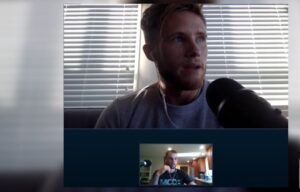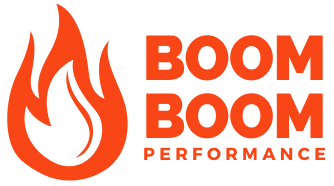
It was a Friday morning, and I had just wrapped up a killer workout session. The endorphins were flowing, and I was feeling stronger than ever. But something that really caught my attention was a podcast I’d been dying to listen to.
It was Mind vs. Muscle with none other than Jeff Nippard, a Pro Natural Bodybuilder. I’ve followed Jeff’s journey for a while now, and when I saw that he was on the podcast, I was pumped.
The interview was packed with solid insights on bodybuilding, nutrition, training strategies, and how the mind plays such a huge role in achieving muscle growth and fat loss. I found myself not just nodding along but also reflecting on my own approach to training and diet.
There’s so much we can learn from Jeff—his approach is scientific, precise, and, most importantly, sustainable. So let’s break down the key takeaways from that interview and how you can apply them to your fitness journey.
What Makes Jeff Nippard a Pro Natural Bodybuilder?
Before we get into the details of the podcast, let’s take a moment to appreciate who Jeff Nippard is and what makes his approach to bodybuilding so effective. Jeff is a Pro Natural Bodybuilder, meaning he’s built his physique without the use of performance-enhancing drugs (PEDs).
He has a degree in biochemistry, which he seamlessly blends with his bodybuilding knowledge. This scientific approach is what sets him apart from a lot of other fitness personalities—you’re not just getting tips based on “what worked for me,” but on actual evidence-based practices.
During the Mind vs. Muscle podcast interview, Jeff shared insights into his training philosophy, nutrition tips, and how the mind-muscle connection plays a pivotal role in maximizing results.
The way he spoke about the mental aspect of training was a real eye-opener for me, and I’m sure it will be for you too.
How Does the Mind-Muscle Connection Influence Bodybuilding?

So what is the mind-muscle connection (MMC), and why is it so important? Jeff really drove this point home during the podcast.
In simple terms, the mind-muscle connection is the ability to focus on and actively engage the target muscle while performing an exercise. Jeff emphasized how this is crucial for maximizing muscle activation and optimizing workouts.
This idea isn’t new to the fitness world, but Jeff’s take on it was refreshing. He talked about how we often go through the motions without truly feeling the muscle working. By consciously engaging the muscle during exercises like squats, deadlifts, or bicep curls, you can enhance activation and get more out of every rep.
Example: When doing chest presses, Jeff suggested really focusing on squeezing your chest at the top of each rep, rather than just pushing the weight up. This allows you to fully engage the chest muscle rather than relying on momentum or other muscle groups to complete the movement.
For me, this shift in mindset has been revolutionary. I’ve noticed better results with my lifts and more defined muscles simply by being more aware of what I’m doing during each set.
What Role Does Nutrition Play in Muscle Growth and Fat Loss?
We all know nutrition is the foundation of any fitness program. But what was interesting about Jeff’s perspective is how nutrition and training go hand in hand, especially when it comes to natural bodybuilding.
In the interview, Jeff discussed how his approach to nutrition is built around progressive overload in the gym and fueling the body with the right amount of nutrients to support muscle repair and growth.
He also mentioned that protein intake is crucial. Aiming for about 1.6-2.2 grams of protein per kilogram of body weight is a good target for anyone serious about building muscle.
But beyond just protein, Jeff emphasized the importance of balancing macronutrients (fats, carbs, and proteins) to support optimal performance.
One thing that really stood out was Jeff’s perspective on carbs. Many people avoid them when trying to lose fat, but Jeff explained that carbs are essential for energy, especially when you’re training intensely.
Cutting them out completely can lead to poor performance and muscle loss over time. Instead, Jeff recommends cycling carbs around workouts for maximum energy and recovery.
How Can You Apply These Insights to Your Fitness Routine?

After listening to Jeff’s insights on the podcast, I immediately felt inspired to take my training to the next level. Here’s how I’ve started applying some of his tips:
1. Mind-Muscle Connection
I’m now more mindful during my workouts, focusing on engaging the target muscle during every rep. Whether it’s my chest during a press or my glutes during a squat, I make sure I’m actively squeezing the muscle at the peak of each movement. It’s not about moving the weight—it’s about feeling the muscle work.
2. Nutrition Precision
I’ve started paying more attention to my protein intake, ensuring I get enough to support muscle recovery. I also include carb cycling around my workouts to make sure I have enough energy to push hard in the gym, while still staying on track with fat loss.
3. Consistency with Recovery
One thing Jeff stressed was the importance of recovery. You don’t just build muscle in the gym—you build muscle while resting. This has been a game-changer for me. Now, I’m prioritizing rest days, getting 7-9 hours of sleep, and managing my stress levels to support my muscle growth and fat loss goals.
FAQ: Mind vs. Muscle Podcast with Jeff Nippard
1. What is the mind-muscle connection, and how do I use it?
The mind-muscle connection is the ability to focus and consciously engage the target muscle while exercising. To use it, focus on the muscle you’re working during each rep—whether it’s squeezing your chest in a bench press or focusing on your quads during a squat. This helps increase muscle activation and can lead to better results over time.
2. How much protein do I need to build muscle?
Jeff recommends aiming for 1.6-2.2 grams of protein per kilogram of body weight to support muscle growth. This ensures your muscles have the necessary building blocks for repair and growth after intense workouts.
3. How do carbs fit into a bodybuilding diet?
Carbs are essential for providing energy during workouts and aiding recovery. Jeff suggests carb cycling, where you consume more carbs around workouts and reduce them on rest days. This helps fuel your body without compromising fat loss goals.
4. Can I apply Jeff Nippard’s advice to my current workout routine?
Absolutely! Jeff’s tips can be applied to any training program. Focus on improving your mind-muscle connection, track your protein intake, and prioritize recovery. These principles will help you build muscle while staying lean, no matter what phase of training you’re in.
Keep Pushing, Keep Improving
After hearing Jeff Nippard’s insights on the Mind vs. Muscle Podcast, I realized that bodybuilding is about much more than just lifting weights. It’s about making sure your body is well-fueled, well-rested, and mentally engaged during every workout. Whether you’re a seasoned lifter or just starting, applying Jeff’s strategies to your training and nutrition can make a massive difference.
So, keep pushing yourself, stay focused, and remember: bodybuilding is a long-term journey. Stay consistent, trust the process, and soon enough, you’ll start seeing the results you’ve been working for.


